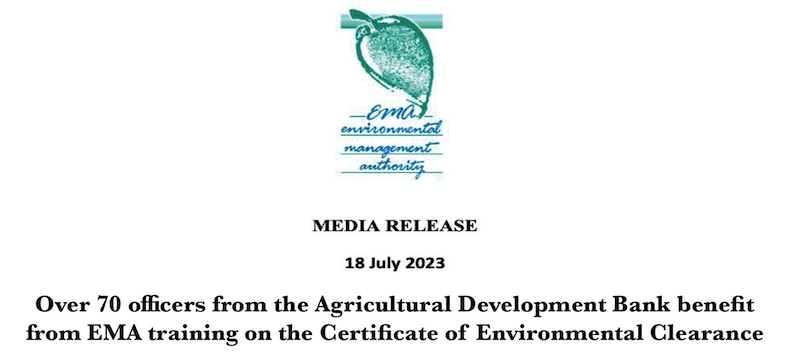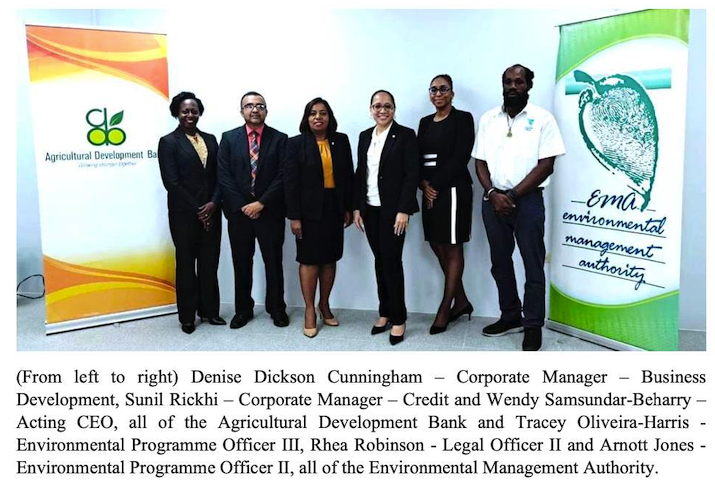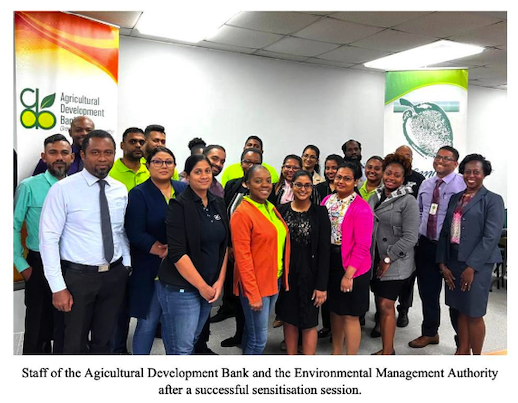
The Environmental Management Authority (EMA) hosted three sensitisation sessions with staff of the Agricultural Development Bank (ADB) in July 2023. The sessions involved over 70 officers from the ADB’s Technical, Credit and Business Development teams and aimed to sensitise staff on the EMA’s Certificate of Environmental Clearance (CEC) process.
The sessions, which were conducted by officers from the EMA’s CEC, Legal, Permit Monitoring, Complaints and Public Education Units, addressed the CEC application process, the issuance and monitoring of the CEC and possible enforcement actions that may be taken in instances where breaches/non-compliance are identified. By the close of the sessions, there was a better understanding of the CEC process and its associated timelines, as well as the applicable Designated Activities for agricultural activities which may require a CEC.
This training opportunity was aligned with the mandates of the EMA and ADB to promote sustainable development and by extension, national food security. Training sessions such as these are executed to increase the ease of doing business as it relates to the CEC process.
About the CEC process –
The Environmental Management Authority (EMA), under the Environmental Management Act Chapter 35:05 (EM Act), is charged with the responsibility of maintaining the delicate balance between environmental management and development. Specifically, to ensure that human activities are conducted in a regulated manner, subsidiary legislation has been enacted to regulate certain types of development. The CEC process is one mechanism used by the EMA to regulate development and mitigate environmental impacts. It is governed by the CEC Rules and the CEC (Designated Activities) Order (as amended). Before embarking on any new activity, modification/expansion of existing structures and processes, decommissioning or the abandonment of projects altogether, persons must consult these Rules, which clearly list 44 Designated Activities that require a CEC. Some activities regulated by the CEC Rules include agriculture, civil works, transportation and associated infrastructure, heavy and light manufacturing, natural resources and mineral extraction, as well as waste recovery, handling, recycling and disposal. To learn more about the CEC Rules, visit https://www.ema.co.tt/ourenvironment/cec/.




Post a comment